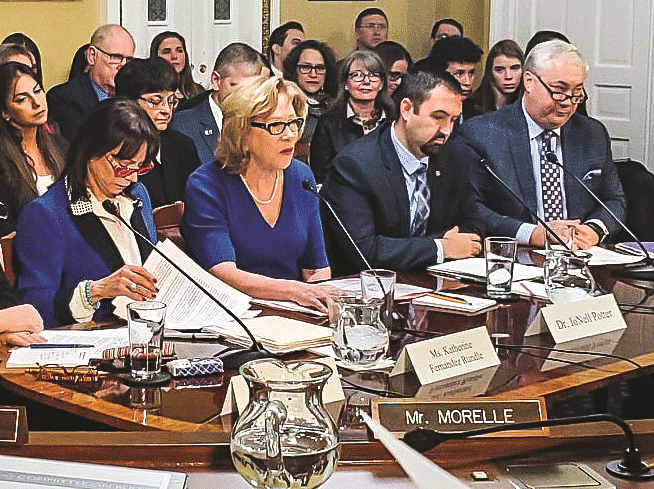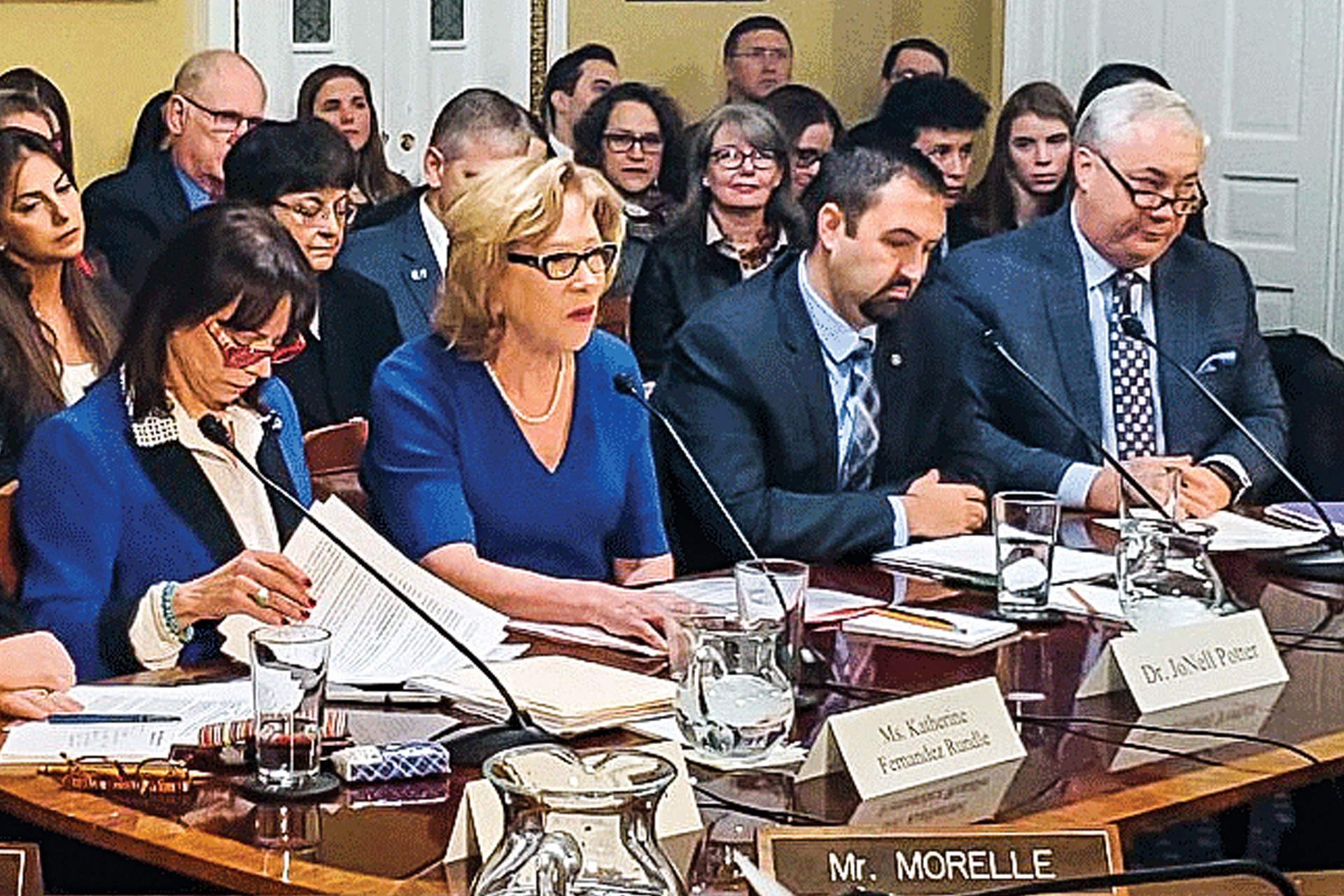Dr. JoNell Potter Speaks to Congress about Human Trafficking
Her testimony calls for increased health care services for victims and training for physicians
By Robert C. Jones, Jr.

JoNell Potter, Ph.D.’ 03 second from left, speaking in Washington, D.C.
Six years ago, local law enforcement officials in Miami and members of South Florida’s Human Trafficking Task Force contacted JoNell Potter, Ph.D., professor of clinical obstetrics and gynecology at the Miller School of Medicine, and asked her to provide health care services for human trafficking victims. What she encountered led her on a new career journey.
“I realized these survivors had experienced years of abuse and medical neglect and had tremendous health care and mental health needs,” recalled Dr. Potter. “Their health care needs, frankly, were beyond the scope of anything we had in place.”
The result was a new clinic dedicated to the health care needs of those victims. Today, THRIVE (Trafficking Healthcare Resources and Intra-Disciplinary Victim Services and Education), is a one-stop shop for human trafficking victims and survivors, providing everything from primary and gynecological care to psychiatry and behavioral health services.
But while THRIVE, a collaboration between the Miller School and Jackson Health System, has made tremendous strides, more needs to be done at all levels to assist human trafficking victims, Dr. Potter told a House Committee on Rules Subcommittee on December 11.
Led by Congresswoman and former UM president Donna E. Shalala, the hearing focused on the complexities of combating human trafficking, ways the federal government can assist local law enforcement, and the additional resources needed for prevention. Miami-Dade State Attorney Katherine Fernandez Rundle and three other expert witnesses also testified.
“All of our patients, every one of them, has post-traumatic stress with all of the classic symptoms — flashbacks, nightmares, anxiety, depression, and suicide attempts,” said Dr. Potter said, lamenting that there is “simply not enough mental health care available.”
She also called for education and awareness, especially for physicians who encounter human trafficking victims in emergency rooms and other health care settings. “State legislatures are working hard to mandate continuing education on human trafficking. Educating and awareness is the key,” she said.
“Their health care needs, frankly, were beyond the scope of anything we had in place.”
— Dr. Potter



